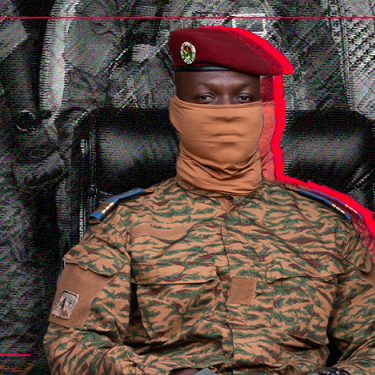Alarming overhaul of Burkina Faso’s media regulator

Reporters Without Borders (RSF) is concerned about a new law in Burkina Faso that overhauls the country’s media regulator, the Superior Council for Communication (CSC), and thereby increase the government’s control over the media landscape.
Passed unanimously by the Transitional Legislative Assembly on 21 November, the law reorganising the way the CSC functions marks another step towards the “patriotic” news coverage sought by Capt. Ibrahim Traoré, the president of Burkina Faso’s military junta. He will now be able to appoint the CSC’s president.
Until now, the CSC’s president was chosen by its nine-member Council of Sages, of whom six members were appointed by the state – three by the country’s president and one each by the heads of the National Assembly, Senate and Constitutional Council – and three were appointed by associations of media professionals. At least five of them were required to work in journalism, broadcasting or communication.
Under the new law, which RSF has seen and which is due to be promulgated soon, the CSC will also exercise authority over the content of posts by bloggers, online activists (who defend a cause by means of social media posts), influencers and any other person with at least 5,000 online subscribers, followers or friends.
Passing this new law increases government control over the country's media landscape and social media. Everything is now in place for the government to be able to penalise journalists, media outlets and even influencers as it sees fit. Under this new law, the risk of the media regulator being misused by the authorities has never been so great. Instead of promulgating this law as it stands, we urge the president to modify it so as to guarantee the CSC’s independence and then send it back to the legislative assembly.
The CSC was long the pillar of media freedom in Burkina Faso. However, the military junta already flouted its authority in August, when it illegally and arbitrarily suspended Radio Omega’s broadcasts until further notice without the CSC’s approval. The radio station was only able to resume broadcasting a month later.
